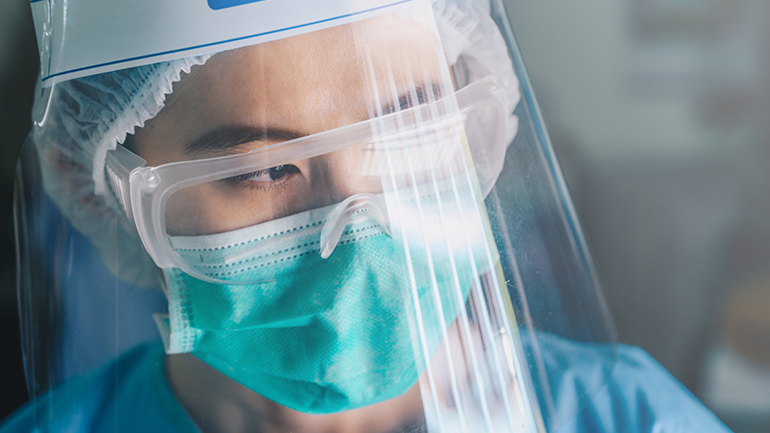
As a doctor, you often deal with people at their worst – when they may be very anxious or even frustrated and angry. In addition, the systems are imperfect and there never seems to be enough staff, equipment, or time. When this stress is repeated day after day without adequate opportunities to replenish and recover, the inevitable outcome is burnout. Burnout is aggravated by moral injury when resource limitations or system restrictions result in compromised or inadequate care being provided. So, what is needed to recover and heal after repeated exposure to a stressful environment (such as the current pandemic)? You may need to take time off work – even a prolonged period, to fully recover. The following list is a toolkit for both recovery and prevention. Applying these interventions into your life will not only help you to recover, but also help you to thrive.
1. Self-awareness
- self-reflection
- identify and acknowledge your emotions
- do a body scan
- keep a journal
2. Self-compassion
- don’t be so hard on yourself
- be realistic about what you can achieve
- accept that there will times when you fail
- congratulate yourself when you do well
3. Rest and refuel
- adequate sleep
- rest that is not passive (e.g. reading, crosswords, puzzles and problem solving)
- nourishment with healthy food
- manage caffeine intake and increase water consumption
4. Physical, mental and spiritual health
- regular health checks with your own GP
- exercise, do something you enjoy
- time outdoors in nature
- mindfulness, focus on the task at hand
- find meaning and purpose
- engage with your spiritual beliefs
5. Revisiting values
- what brought you to medicine?
- what are you passionate about?
- what are your life goals?
- what life balance do you want?
6. Relationships with family and friends
- a support network outside medicine
- meaningful personal relationships which are supportive
- step away from toxic relationships which harm your self-worth
- partner time (if applicable)
- family time
7. Broad interests outside medicine
- hobbies and outside interests
- creative pursuits
- music and/or dance
- have fun and be playful
- holidays (separate from conferences)
- travel
8. Professional development and personal growth
- never stop learning
- learning for enjoyment (e.g. a language or a musical instrument or a craft)
- skill development
- personal development
- development of leadership skills
9. Teamwork and support from colleagues
- huddles and handover
- debriefing
- call out bad behaviour
- support each other, say thank you and well done
10. Compassionate practice
- listen to each patient and acknowledge their preferences
- focus on the needs of the individual
- look at the whole person
- value the doctor-patient relationship
It may not be possible to do all these things all the time, and self-compassion is important when putting this into practice. Acknowledge what you have achieved and what changes you have made and congratulate yourself.
Kay Dunkley
AMA Victoria Coordinator of Doctor Wellbeing
Resources
- Managing burnout | Black Dog Institute
- Moral injury | Black Dog Institute
- Cynical and unenthusiastic? You may be suffering burnout | Avant Mutual
- Mental health and the pandemic | Dr Eric Levi
- If you listen closely | Endurance Doc in Training
- Part 1: At the front lines - evolving systems, escalating pressures and the attempt to exceed expectations | On The Wards
- Part 2: We need never be ashamed of our tears - recognising and recovering from burnout | On The Wards
